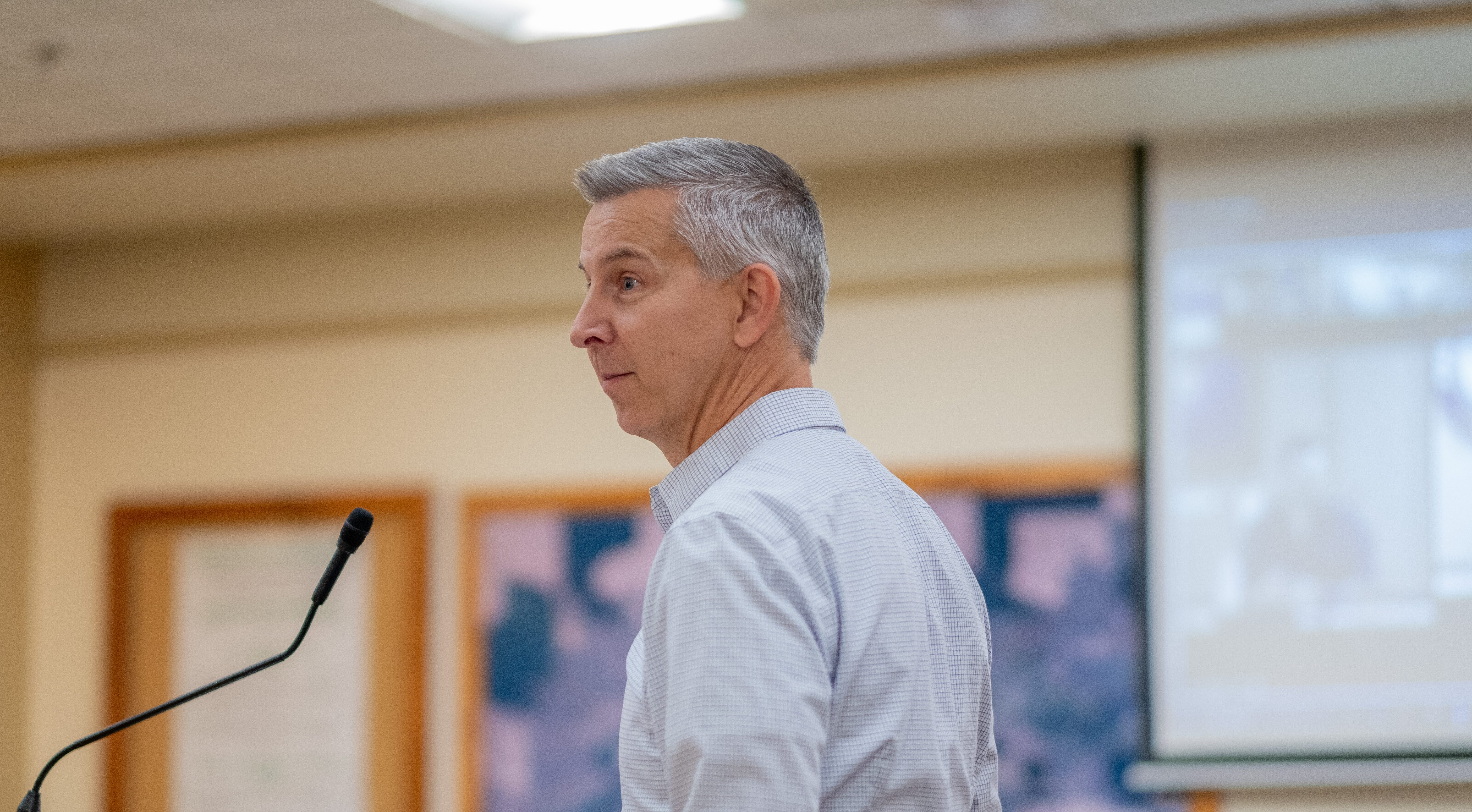Cap and trade passes the House
Published 9:49 pm Monday, June 17, 2019

- Rep. Karin Power, D-Milwaukie, carries House Bill 2020 on the floor Monday night. The cap-and-trade legislation passed the House 36-24 and now moves to the Senate where the vote margin will likely be slimmer, but it’s expected to pass nonetheless.
SALEM — After months of committee hearings, Republicans relished their final opportunity to pepper Democrats over their proposed legislation to cap greenhouse gas.
They took to the floor to give grand speeches they can point to when on the campaign trail, but they weren’t able impact a vote.
Trending
That was decided well before House Bill 2020 hit the floor, where it passed 36-24 on Monday.
It’s a significant and penultimate step for the Oregon Legislature.
The bill now moves to the Senate where the vote margin will likely be slimmer, but it’s expected to pass nonetheless.
Rep. Karin Power, D-Milwaukie, carried the bill on the floor and co-chaired the joint committee that created it. She said climate change is the greatest threat of our lifetime, but we still have an opportunity to limit our impact on the environment.
The policy known as cap and trade, if passed, will go into effect in 2021 and join Oregon with California as the only states in the country with an economy-wide carbon pricing program.
The program will heavily regulate emissions in the hopes of forcing industry to find cleaner ways to produce and ship goods.
Trending
By charging companies to emit greenhouse gasses, the state will create a revenue stream to fund projects to mitigate the impact of climate change, as well as limit the effect of the program on low-income communities.
However, Republicans do not believe in the mechanisms to soften the blow on low-income and rural Oregonians.
They say cap and trade will destroy Oregon’s business climate — something they say Democrats have had in their crosshairs for years with policies like the clean fuel standard and “coal to clean” legislation aimed at transitioning electric utilities from coal-generated power.
But in the end, the two sides just don’t see eye to eye, and Oregonians have stuffed the Capitol with Democrats.
It was a point made early in floor debate by Rep. Kim Wallan, R-Medford.
Wallan, in speaking from her opponents’ perspective, said it’s the case of the “woke” versus the “rubes.” Both find it incredibly frustrating that the other side can’t see why this policy is either imperative or disastrous.
She’s right in pointing out how deeply partisan the issue is. Democrats first introduced carbon pricing legislation in 2007, yet in 2019 they did not secure a single Republican vote despite 20 committee hearings, many of which stretched well into the evening.
Wallan’s words underscored the entire 6-1/2 hour floor debate, as Democrats and Republicans took turns giving lengthy speeches, all of which had been brought up in hearings and testimony before.
Through the hours, the once-packed gallery saw about half its seats empty as Republicans worked to draw the debate into the evening, enhanced by parliamentary tricks.
Republicans made five motions to send the bill to various policy committees.
All failed despite creative arguments on why the bill should go to committees that have already adjourned for the session and deal with other issues.
Rep. Christine Drazan, R-Canby, appealed a ruling by Speaker Tina Kotek, D-Portland, finding the bill is not a tax, and therefore need a three-fifths majority.
House Republican Leader Carl Wilson, R-Roseburg, made a motion to suspend the bill indefinitely. None of the motions had a chance of passing, but they did allow for points to be made on the record and for Republicans to hold off a vote for a couple more hours.
However, in the end some Democrats did stray.
Rep. Brad Witt, D-Clatskanie, said HB 2020 “suffers greatly” and is not the answer to climate change.
Rep. Caddy McKeown, D-Coos Bay, also spoke out against it, saying this isn’t the fix to climate change.
It was always known some House Democrats might break away from the pack on this vote, in part because they face rural constituencies that could be more impacted by the bill.
While the bill is deeply partisan, both sides spoke about how they strongly believe their point of view is right for Oregon. Republicans want to protect businesses in their district, while Democrats talked about saving our climate so future generations can live a life that resembles current day.
“I love this state, and I love being an Oregonian,” Power said. “It is for these reasons I believe we need to act and be a beacon of hope for the rest of the country.”
The bill now moves to the Senate where it will get a hearing later this week, where it’s unclear is how Republicans will protest the bill. Previously, they staged a walkout over a business tax bill.









